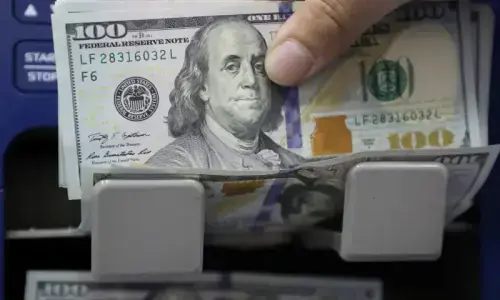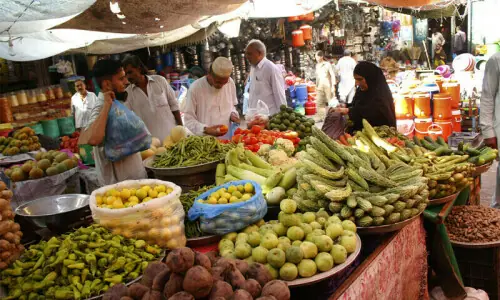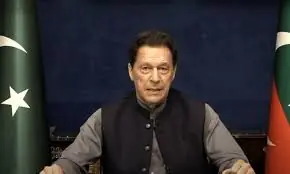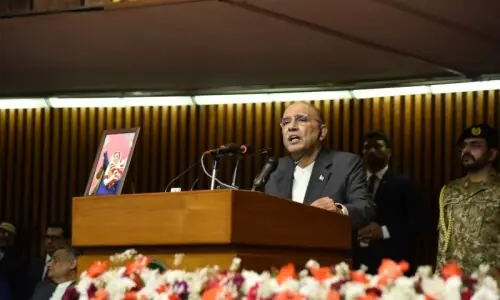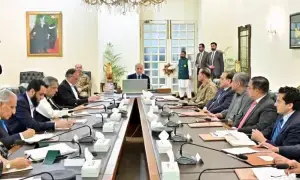As per routine, I reached my office on the morning of August 8, 2016. Feeling tired, I lay on the prayer mat in the sound room to get some rest. Before I could close my eyes, I got a call from the head office in Karachi.
“Hafeez, has the president of the Balochistan Bar Association come under attack?”
“Who is reporting this?” I asked. “There are tickers on other channels,” the voice on the other end replied.
I asked them to give me a few minutes to find out what's going on. I directed the cameramen to get on it and, in the meanwhile, pulled out my cellphone to call Advocate Daud Khan Kasi.
“Sir, this is Sherani speaking.”
“Yes I have your number saved, Sherani.”
“Has something happened to Bilal Kasi?”
“Yes I have just heard news of an attack on him. I’m heading to the hospital and will get back to you soon. Thank you. Allah Hafiz.”
I then phoned Edhi and was told that Bilal Anwar Kasi has been attacked on Manojan Road.
I informed the head office to run the news that Bilal Anwar Kasi, president of the Balochistan Bar Association, has been killed in an attack by unknown assailants.
I then headed out to the Civil Hospital, along with driver Mama Ayub, cameraman Mahmood Hamdard, and engineer Imran Rana. On our way, we could see a number of lawyers running toward the hospital.
As we were about to reach the hospital, Mahmood suggested that it would be better to park the vehicle outside since the lawyers were angry and the situation could take a turn for the worse.
“I will get the visuals and come back quickly. You shouldn’t take a lot of time either, Hafeez,” said Imran as we were parking.
I managed to get to the former president of the Balochistan Bar Association, Baz Mohammad Kakar, who was surrounded by numerous other lawyers. Sorrow was distinctly visible on his face.
I asked him what and how did it all happen. “Can’t say anything for now,” he replied. I have a feeling that he wanted to say a lot more than just that.
I could see that Daud Kasi had already arrived. He was accompanied by Barrister Adnan Kasi, Gul Zarren Kasi and other members and lawyers from the Kasi clan.
As a journalist, I sought permission to go inside the morgue, which was about 70 feet away from where Baz Kakar was standing, in order to see the details of Bilal Kasi’s post-mortem report.
My colleague Mahmood, with his camera in hand, was right outside the morgue from where Bilal Kasi's body had to be taken to the ambulance and then to his home.
As I was about to enter, the doctor stepped out. “How many bullets did Bilal Kasi take?” I asked. “Nine. Two on the head, seven on the chest...”
Before he could complete the sentence, there was a loud blast not far away from us. I went down on the floor as a reflex. For a few seconds, complete silence engulfed the hospital courtyard.
The silence was broken by the wails of the injured. The lawyers outside the Out Patient Department have been targeted, I feared, as I ran toward what I thought was the site of the blast.
My hunch turned out to be true. Lawyers, who were alive just seconds ago, were strewn across the floor, most of them dead with their bodies burnt and shredded to pieces.
I did not know what to do. As I was standing among the heap of bodies, I heard someone call my name. It was Advocate Wali Khan Mandokhel. “Please don’t cry Hafeez,” he said to me when he saw my tears.
“If something happens to me, tell my mother and elder brother to not cry for me.”
“Nothing will happen to you,” I cried out aloud, as I shouted for help. A couple of people came to help me take Wali Khan inside the hospital.
Up until that point, I hadn't even grasped that the blast was a bomb attack and many had been killed. I called out for my colleague Mahmood as I started losing control of myself.
Someone tried to comfort me by saying that they had seen him and that he was fine.
I then got a call from our Quetta bureau chief. “Mahmood?” he asked. “He’s not here,” was all that I could say.
I went to the Accidents Departments but he wasn’t there. He wasn’t in the morgue either. Nobody knew where he was. The news of the death of Aaj TV’s cameraman Shahzad Khan death was running on some news channels.
I looked for him for about an hour but could not find him. Finally, someone informed me that he was at Combined Military Hospital (CMH) Quetta.
Our bureau chief had already reached CMH but he couldn’t locate Mahmood. I went back to the morgue at the Civil Hospital to see if I could find him there
The number of dead was increasing by the second and the morgue at the Civil Hospital was full. I had to remove the kafan from each dead body to see if it was Mahmood. I was praying that he wasn't there.
After looking at faces of 11 young men, the 12th face seemed familiar. I breathed a sigh of relief that it wasn't Mahmood.
As soon as I left the morgue, I remembered that my uncle Qazi Akhtar Shah Sherani had called, asking for the whereabouts of his nephew, Advocate Qaiser Khan.
I went back to the morgue and looked at the bodies again. Qaiser Khan was indeed among the dead. Dreams of a bright future after completing law from Gomal University lay in ruins. I informed my uncle of what I had seen.
In the meanwhile, the entire Dawn team in Quetta was looking for Mahmood. Three hours had gone by and hopes of finding our colleague had pretty much diminished. A cameraman told me that he had seen him among the injured, while someone else told me that he was dead.
More hours went by. Tired and hopeless, I returned to the office and switched on my mobile. Relatives and friends had been calling. TV channels were reporting that someone by the name of Hafeezullah had died. I found out a little later that it was Hafeezullah Mandokhel.
Our bureau chief called: “Mahmood is at CMH, critically injured. Come here quick. Four drips of blood are required."
I entered the cantonment, where the hospital was, without any formal identification. Maybe nobody saw me, or maybe they let me inside because of my blood-stained clothes.
As I made my way inside the premises, a stranger on a motorcycle gave me a ride to CMH. Upon reaching the emergency ward, the personnel on duty there stopped me from proceeding further.
I begged and pleaded, screaming for them to let me go as "I have come to donate blood to my brother who is critically injured." My words fell on deaf ears and despite all my reasoning, I was not allowed to go past the guards.
After about half an hour, I successfully managed to reach the door leading to the operation theatre. There, my eyes fell upon Advocate Rauf Ata, lying on a stretcher, all bloody and wounded. I gave him assurances that nothing will happen to him.
As I was saying this, a man who appeared to be in charge of the operation theatre emerged from behind the doors and started telling everyone gathered there to disperse. I was also asked to leave.
As I exited the building, I ran into our bureau chief and two of Mahmood's friends, who told me that four drips of blood had been arranged for Mahmood.
They had also been told that Mahmood, along with others who had been critically injured, would be transported to Karachi via helicopter. Our bureau chief said that he will accompany Mahmood to Karachi.
At 2:30 in the afternoon, I got a call from the head office telling me to appear before the camera and provide an account of the events. I told them that I'm unable to speak on TV at the moment, in this state.
I was assured by the desk that they are not having me cover the incident in a reporting capacity, but simply wanted me to describe the events that I saw unfolding right before my eyes.
As cameras were not allowed on the hospital premises, I exited Cantt and installed a camera on the road next to Girls College. I stood in front of the camera, ready to go live.
I heard the newscaster read the headlines and then she went on to say “For further details lets talk to our correspondent Hafeezullah Sherani.”
Just then, our engineer Imran Rana walked up to me and whispered, “Hafeez, Mahmood is now a martyr.” He also told me that our bureau chief "has instructed us to not share this news live.”
I stood paralysed in front of the camera. The anchor waited and repeated the words “For further details let’s speak with Hafeezullah Sherani.”
I wept silently for a few seconds, before going on to describe the details of the suicide attack.
The newscaster’s last question was: “Hafeez we have heard that your comrade and Dawn cameraman Mahmood is critically injured. What is his condition now?”
Hearing this sentence, I felt like the world had come to an end, and the words still ring in my ears to this very day.
I hardened my heart and replied, “All we know right now is that the doctor has asked us all to pray for Mahmood.”
Have you or anyone you know been affected by terrorists attacks? Share your story with us at blog@dawn.com















